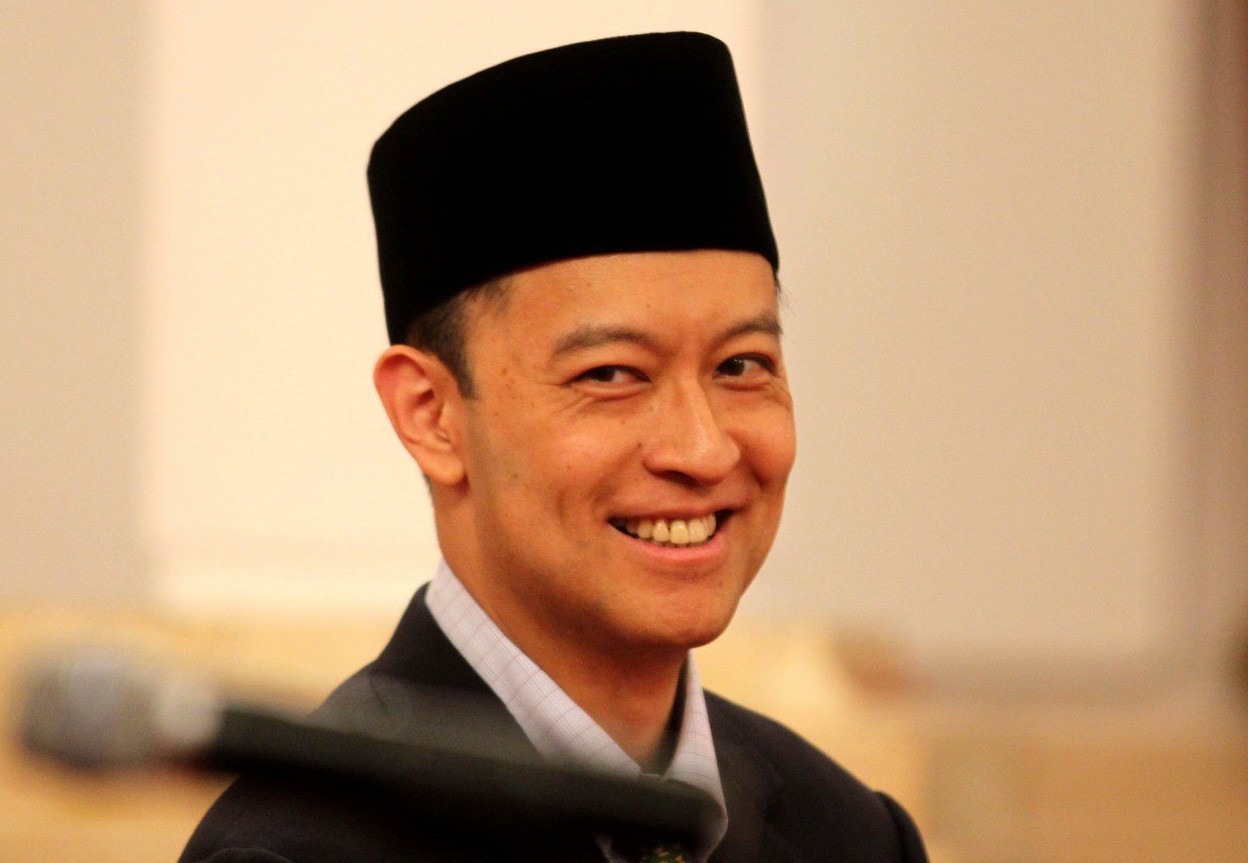INSIGHT: President Jokowi’s trade policy: Onward and upward
Change Size
 Thomas Lembong smiles after his inauguration ceremony as Trade Minister in Jakarta on Aug. 12, 2015. (JP/Wienda Parwitasari)
Thomas Lembong smiles after his inauguration ceremony as Trade Minister in Jakarta on Aug. 12, 2015. (JP/Wienda Parwitasari)
H
aving just handed off at the Trade Ministry and taken over at the Investment Coordinating Board (BKPM), now is a unique moment for me to comment on Indonesia’s trade and investment, two issues that are actually closely interlinked.
I believe that we can expect a lot of continuity in our government’s international trade policy, notwithstanding that a new trade minister was appointed in the recent Cabinet reshuffle. New Trade Minister Enggartiasto Lukita has moved swiftly to implement President Joko ‘‘Jokowi’’ Widodo’s instructions during the first plenary Cabinet meeting post-reshuffle: (1) that there is only the vision of the President and Vice President, and (2) the importance of “solidity” in the Cabinet, by which I believe he means “teamwork”.
First, Minister Enggar has instructed the leadership of the Trade Ministry to continue all the programs on the international side, such as our pursuit of trade agreements with the European Union and with Australia. Second, with the big-hearted spirit and self-confidence that comes from being a highly successful person, Minister Enggar then invited me to continue to contribute to our international trade agenda. Obviously, I’m delighted to oblige. The first follows the vision of President Jokowi; the second is a welcome gesture toward Cabinet teamwork.
President Jokowi has now publicly stated many times that he has distilled his economic reform philosophy down to two fundamental principles: openness and competition.
President Jokowi and Vice President Jusuf Kalla understand very well the meanings of “trade diversion” and “investment diversion”. In short: right now, a lot of factories are shutting down in Indonesia and the Philippines and moving to Vietnam.
Why? Because Vietnam has trade agreements with the EU and the US, while Indonesia and the Philippines do not. By the way, the EU and the US are two of the world’s top export destinations, each being a roughly US$17 trillion-per-year economy.
Under Vietnam’s trade agreements with the EU (CEPA), and with the US (TPP), Vietnamese exports enjoy 0 percent tariffs when entering the EU and the US markets. Meanwhile, the EU and the US apply 10-17 percent tariffs on Indonesian and Philippine exports. Hence, Vietnamese exports are immediately 10-17 percent cheaper than Indonesian and Philippine exports, just on tarriffs.
Indonesian and Philippine exports cannot compete under such tariff disadvantages. As a result, investment (in factories) and the exports that will be produced by those factories are being “diverted” from countries that have no trade agreements (Indonesia, the Philippines), to countries that have trade agreements (Vietnam).
That is why both the Philippines and Indonesia are now racing to complete CEPAs with the EU, and are likely to have little choice but to pursue the TPP with the US. This is one example of what President Jokowi means when he says that “we live in an era of competition”.
Indonesia is competing against Vietnam and the Philippines. Nobody will want to invest in factories in Indonesia if exports from Indonesia suffer a price disadvantage of 10-17 percent versus exports from Vietnam just on tariffs. Boosting Indonesia’s exports requires investment (in factories, etc.), and to attract such investment requires trade agreements with important export destinations like the EU and the US. Hence the close interlinkage between investment and trade.
I feel that Pak Enggar is an excellent choice to replace me as trade minister. We need to remember that economic reforms not only need to be formulated technocratically, but also need to be disseminated to political parties and to governors, district chiefs and mayors. As a veteran of domestic politics, Pak Enggar will be much better than me at disseminating our trade sector reforms to political stakeholders. Through teamwork, my hope is that we can combine the best of both worlds: his clear strength in domestic politics, with my now-established strength in the international arena.
More broadly, the recent Cabinet reshuffle significantly enhances President Jokowi’s political position. Not only have the Golkar Party and the National Mandate Party (PAN) joined the government, President Jokowi has also pulled in more closely both Minister Enggar’s NasDem Party and Coordinating Political, Legal and Security Affairs Minister Wiranto’s Hanura Party.
In my view, the more ambitious the economic reforms that we want to pursue, the stronger our President needs to be politically to push those reforms through. For me, pulling these political parties in is a forceful way to make them take greater ownership of the President’s economic reform agenda.
With President Jokowi’s strengthened political coalition and teamwork between Minister Enggar and me (as well as Industry Minister Airlangga Hartarto and others), I’m extremely hopeful that Indonesia’s pursuit of its international trade agenda will exhibit the Olympic ideals currently playing out in Rio de Janeiro: citius, altius, fortius — faster, higher, stronger.
_____________________________________
The writer is head of the Investment Coordinating Board (BKPM).









